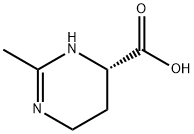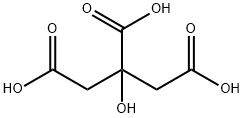A7620458
Ectoine , 10mMinWater , 96702-03-3
Synonym(s):
(S)-2-Methyl-1,4,5,6-tetrahydropyrimidine-4-carboxylic acid;Thp(B)
CAS NO.:96702-03-3
Empirical Formula: C6H10N2O2
Molecular Weight: 142.16
MDL number: MFCD03419286
EINECS: 431-910-1
| Pack Size | Price | Stock | Quantity |
| 1ml | RMB159.20 | In Stock |
|
| others | Enquire |
Update time: 2022-07-08
PRODUCT Properties
| Melting point: | ~280° |
| alpha | D20 +140° (c = 1.0 in methanol) |
| Boiling point: | 381.5±35.0 °C(Predicted) |
| Density | 1.37 |
| storage temp. | 2-8°C |
| solubility | methanol: 20 mg/mL, clear, colorless |
| pka | 3.14±0.20(Predicted) |
| form | Solid |
| color | White to Off-White |
| Water Solubility | Water : 250 mg/mL (1758.58 mM) |
| BRN | 7288977 |
| Stability: | Hygroscopic |
| InChI | InChI=1S/C6H10N2O2/c1-4-7-3-2-5(8-4)6(9)10/h5H,2-3H2,1H3,(H,7,8)(H,9,10)/t5-/m0/s1 |
| InChIKey | WQXNXVUDBPYKBA-YFKPBYRVSA-N |
| SMILES | C1(C)=NCC[C@@H](C(O)=O)N1 |
Description and Uses
Ectoine is a cyclic tetrahydropyrimidine organic osmolyte, which was discovered in the halophilic bacterium Ectothiorhodospira halochloris. It is the most abundant solute produced by aerobic heterotrophic eubacteria and has been extensively characterized as an osmoprotectant and stabilizer for cells and biomolecules.
Ectoine is a natural protector that stabilizes proteins and other cell structures and protects the skin from stresses such as UV exposure and dryness.



